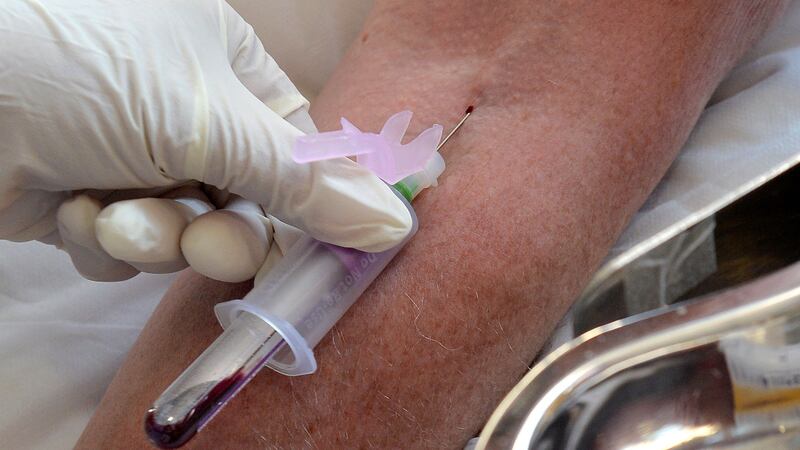A blood test has been developed that could save countless lives by improving early detection of lung cancer.
The test measures circulating DNA that is shed by cancer cells as they grow and multiply.
Scientists believe it could predict the presence of low-grade tumours in the lungs long before they become a threat.
Each year lung cancer kills around 35,600 people in the UK, making it the number one cause of cancer death.
Late diagnosis is one of the main reasons why the disease is so lethal.
By the time lung cancer has been detected, it has often spread to other parts of the body, making it much more difficult to treat.
The new blood test was developed using mice with a mutant version of the gene KRAS, which triggers cell abnormalities leading to lung cancer.
Mice developing cancerous lung tumours were found to have higher levels of lung cancer DNA in their blood.
The amount of DNA shed by the cancerous tumours also correlated with the size of tumours seen on CT (computerised tomography) scans.
A closer look at the DNA revealed the presence of the KRAS mutation at a stage when tumours were still pre-cancerous.
Lead scientist Dr Miguel Martins, from the Medical Research Council Toxicology Unit at Cambridge University, said: “This observation is exciting because it suggests that tumour-causing mutations may be detectable in circulating DNA from patients with early-stage cancers or with pre-cancerous tumours.”
The findings are reported in the journal Disease Models and Mechanisms.
Nick Hopkinson, medical director at the British Lung Foundation, said: “This is an early study in mice, but it is a very interesting area of research.
“A blood test for lung cancer would be a big step forward as long as it is sensitive and specific so that there are not a lot of false positive or false negative results.
“In the meantime the most important message is, if you’re a smoker, the best thing you can do to lower your cancer risk is to quit smoking.
“It’s also important not to ignore symptoms like getting out of breath doing things you used to be able to do, or a cough lasting more than a few weeks.”








